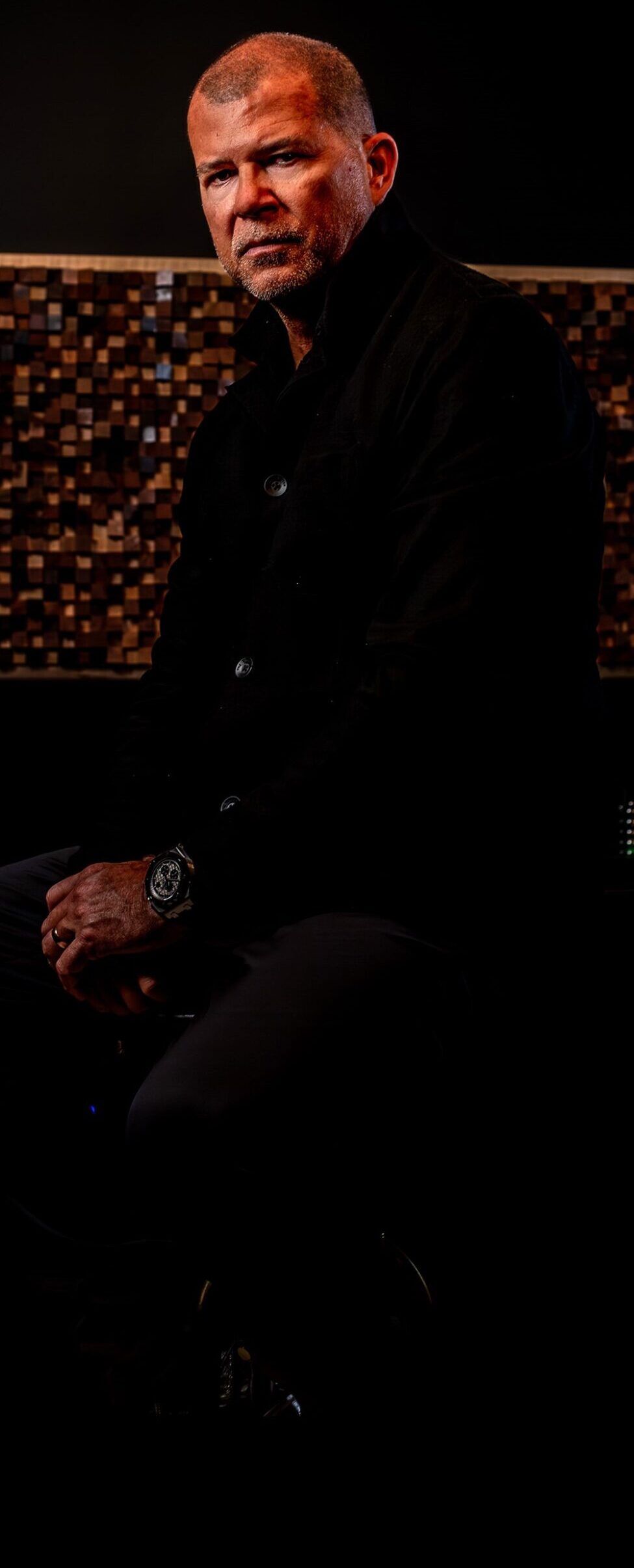Procuring is defined under Ohio Revised Code Section 2907.23. Unlike other charges, procuring does not require direct participation in prostitution—merely arranging, facilitating, or encouraging another person to engage in prostitution can lead to criminal charges. The law is strict, and in cases involving minors, charges escalate to felonies regardless of intent or knowledge of age. Prosecutors do not have to prove the accused knew a minor was involved, making it easier for individuals to face serious consequences based on minimal evidence or misunderstandings.
Cincinnati Lawyer for Procuring
If you have been charged with procuring, you need to contact an experienced criminal defense attorney immediately. Mark Weiczorke has over 16 years experience defending those accused of crimes in Southern Ohio, including sex crimes.
The Wieczorek Law Firm, LLC, led by Mark Wieczorek serves all of Ohio, including Hamilton County, Butler County, Clermont County, Brown County, Highland County, Clinton County, Preble County, Scioto County, Greene County, Montgomery County, and Warren County, and Southern Ohio.
Call today at (513) 317-5987 for your free case evaluation.
- Overview of Procuring:
- Procuring under Ohio Law
- Jury Considerations
- Key Definitions
- Common Defenses
- Frequently Asked Questions
- Additional Resources
- Hire an Attorney for Procuring in Hamilton County, OH
Procuring under Ohio Law
Enticing or Soliciting Someone to Patronize a Prostitute or Brothel
Under Ohio Revised Code Section 2907.23(A)(1), it is illegal for a person to knowingly entice or solicit another person to engage in prostitution or visit a brothel. This means that even if a person does not directly participate in sexual activity, they can still be charged with Procuring if they encourage or persuade someone else to engage in prostitution. A conviction for this offense is classified as a first-degree misdemeanor, which carries a maximum penalty of six months in jail and a fine of up to $1,000.
Procuring a Prostitute for Another Person
According to Ohio Revised Code Section 2907.23(A)(2), a person commits this offense if they knowingly arrange for a prostitute to engage in sexual activity with someone else. The law applies even if no money is exchanged directly between the parties. Procuring a prostitute for another person is a first-degree misdemeanor, punishable by up to six months in jail and a fine of up to $1,000. However, if the person involved in prostitution is under 18, the penalties increase significantly. If the prostitute is under 16 years old, the charge becomes a fourth-degree felony, punishable by up to 18 months in prison and a fine of up to $5,000. If the prostitute is 16 or 17 years old, the offense is a fifth-degree felony, which can result in up to 12 months in prison and a fine of up to $2,500.
Allowing Premises to Be Used for Prostitution
Under Ohio Revised Code Section 2907.23(B), a person with authority or control over a property can be charged with Procuring if they knowingly allow the premises to be used for prostitution. This applies to landlords, business owners, hotel managers, or any person who permits their property to be used for illegal sexual activity. If convicted, this offense is a first-degree misdemeanor, carrying up to six months in jail and a $1,000 fine. If a prostitute involved in the activity is under 16 years old, the charge is upgraded to a fourth-degree felony. If the prostitute is 16 or 17 years old, the charge is a fifth-degree felony, both of which carry significant prison time and fines.
Jury Considerations in Procuring Cases
Did the defendant act knowingly? The prosecution must show that the defendant was aware of their actions and intentionally participated in enticing, soliciting, or procuring.
Was there financial gain? To convict under Section 2907.23(A), jurors must determine whether the defendant acted for personal benefit, which could include money, favors, or other compensation.
Did the defendant procure a prostitute or facilitate prostitution? The jury will consider whether the defendant actively arranged for someone else to engage in prostitution, either by making introductions, directing someone to a brothel, or organizing the meeting.
Did the defendant knowingly allow prostitution on their property? If the charge is based on allowing prostitution to occur on a property, the jury must determine whether the defendant had authority over the premises and knowingly permitted illegal activity to take place.
Was a minor involved? If the alleged offense involved a person under 18, the jury does not need to find that the defendant knew the individual’s age. The mere fact that a minor was involved is enough to elevate the charge to a felony.
Key Definitions in Ohio’s Procuring Laws
- Knowingly – A person acts “knowingly” when they are aware of their actions and the likely consequences. For Procuring, the state must prove that the accused was conscious of their role in arranging or facilitating prostitution.
- For gain – The term refers to financial or personal benefit. A charge under Section 2907.23(A) requires that the defendant acted in exchange for money, goods, services, or other rewards.
- Solicit – Solicitation involves asking, persuading, pressuring, or encouraging someone to patronize a prostitute. The definition includes verbal or non-verbal communication.
- Patronize – This term means to engage with or seek out the services of a prostitute. It applies to individuals who actively visit brothels or request services, as well as those who facilitate such actions for others.
- Procure – Procuring means obtaining, arranging, or introducing a person for the purpose of prostitution. This does not require direct participation in sexual activity but instead focuses on organizing or enabling the act.
- Sexual activity – Ohio Revised Code Section 2907.01(C) defines this term broadly to include any sexual conduct or contact between individuals, whether for physical pleasure or as part of an exchange.
- Premises used for prostitution – Property owners, managers, or tenants can be charged with Procuring if they knowingly allow prostitution to take place on their property, regardless of whether they directly profit from it.
Common Defenses Against Procuring Charges
No Knowledge That Prostitution Was Involved
One of the strongest defenses against a Procuring charge is proving that the defendant had no knowledge that prostitution was taking place. Prosecutors must show that the accused “knowingly” enticed, solicited, or facilitated prostitution. If the defense can demonstrate that the defendant was unaware of any illegal activity—such as giving someone a ride without knowing their purpose, or renting a property without knowing it would be used for prostitution—then the charges may be dismissed or reduced.
No Financial Benefit from the Alleged Crime
Ohio law requires that Procuring be done “for gain.” This means that the accused must have received or expected some form of financial or material benefit from arranging or facilitating prostitution. If there is no evidence that the defendant profited in any way, then a key element of the crime is missing. The defense can argue that any involvement was purely coincidental or based on innocent social interactions.
Entrapment by Law Enforcement
In some cases, Procuring charges result from undercover police operations. If law enforcement officers pressured or persuaded the accused into committing a crime they would not have otherwise committed, this may be a case of entrapment. The defense can argue that the defendant was unfairly induced into committing an act they had no prior intention of doing. However, this defense is only viable if the defendant can show that they were not predisposed to commit the offense.
No Intent to Patronize or Facilitate Prostitution
Intent is a crucial element in a Procuring charge. If the defendant did not intend for prostitution to occur, they may not be guilty. For example, a person may introduce two individuals without knowing that a prostitution transaction would take place. If there was no deliberate effort to arrange sexual activity for hire, then the defendant may have a valid defense against the charges.
Frequently Asked Questions
Can a person be charged with Procuring if no money was exchanged?
Yes. Under Ohio Revised Code Section 2907.23, Procuring can involve any personal gain or benefit, not just direct financial transactions.
Is it a crime to simply introduce two people without arranging prostitution?
Not necessarily. A person must knowingly facilitate or encourage prostitution to be guilty of Procuring. However, an introduction that directly leads to prostitution could be used as evidence in a case.
What happens if a person did not know they were arranging for prostitution?
If a person was unaware that their actions were contributing to prostitution, this could serve as a defense. The prosecution must prove that the accused acted knowingly.
Can someone be charged with Procuring if they were not physically present during the crime?
Yes. A person can be convicted even if they were not present, as long as they played a role in arranging or facilitating prostitution.
What are the penalties for a first-time Procuring offense?
A first-time offense is usually a first-degree misdemeanor, punishable by up to six months in jail and a $1,000 fine. If a minor was involved, the charge may be upgraded to a felony.
Can a property owner be charged if tenants engage in prostitution without their knowledge?
No. Under Ohio Revised Code Section 2907.23(B), a person must knowingly permit their premises to be used for prostitution to be held criminally responsible.
Is an undercover police officer required to identify themselves if asked?
No. Police officers are allowed to conduct undercover operations, and they are not required to disclose their identity when asked.
Can a Procuring charge be removed from a criminal record?
Depending on the circumstances, a first-time misdemeanor conviction may be eligible for expungement. Felony convictions are more difficult to remove but may qualify in certain situations.
Does a Procuring conviction require sex offender registration?
Generally, Procuring does not result in mandatory sex offender registration. However, if related offenses are charged, registration could be required.
Why is it important to have a lawyer for a Procuring charge?
Prosecutors aggressively pursue Procuring cases, especially those involving minors. An experienced criminal defense lawyer can help protect the accused’s rights, build a strong defense, and work to minimize penalties or seek case dismissal.
Additional Resources
Ohio Revised Code Section 2907.23 – Enticement or Solicitation to Patronize a Prostitute; Procurement of a Prostitute for Another – This source contains the full text of Ohio Revised Code Section 2907.23, which defines Procuring and its legal penalties in Ohio. It explains the specific actions that can lead to a Procuring charge, the distinction between misdemeanor and felony offenses, and the sentencing guidelines based on the age of the person involved.
Ohio Judicial Conference – Ohio Jury Instructions for Procuring – This source provides official jury instructions related to Procuring under Ohio Revised Code Section 2907.23. It outlines the elements that must be proven in court for a conviction, including definitions of key legal terms such as “solicit,” “procure,” and “knowingly.” The instructions guide jurors on how to evaluate evidence and apply the law.
City of Cincinnati Code – Chapter 898: Escorts and Escort Services – This source details Chapter 898 of the Cincinnati Code of Ordinances, which regulates escort services in the city. It includes licensing requirements, business restrictions, and prohibitions against escort services that offer or promote prostitution. The ordinance also defines different types of escorts, escort services, and the penalties for violating these regulations.
Hire an Attorney for Procuring in Hamilton County, OH
If you have been charged with procuring, you need to contact the Wieczorek Law Firm immediately.
The Wieczorek Law Firm, LLC, led by Mark Wieczorek serves all of Ohio, including Hamilton County, Butler County, Clermont County, Brown County, Highland County, Clinton County, Preble County, Scioto County, Greene County, Montgomery County, and Warren County, and Southern Ohio.
Call today at (513) 317-5987 for your free case evaluation.

